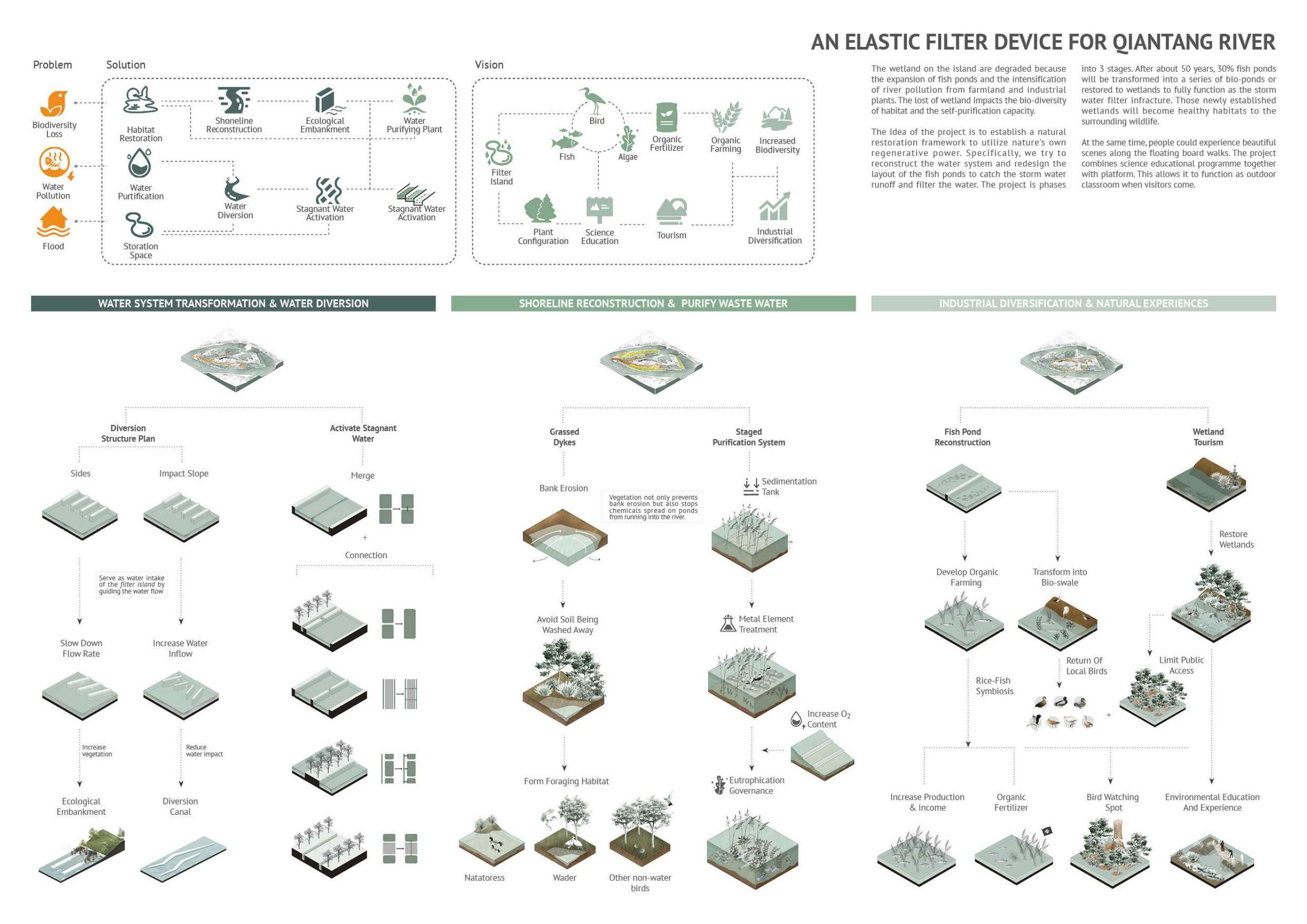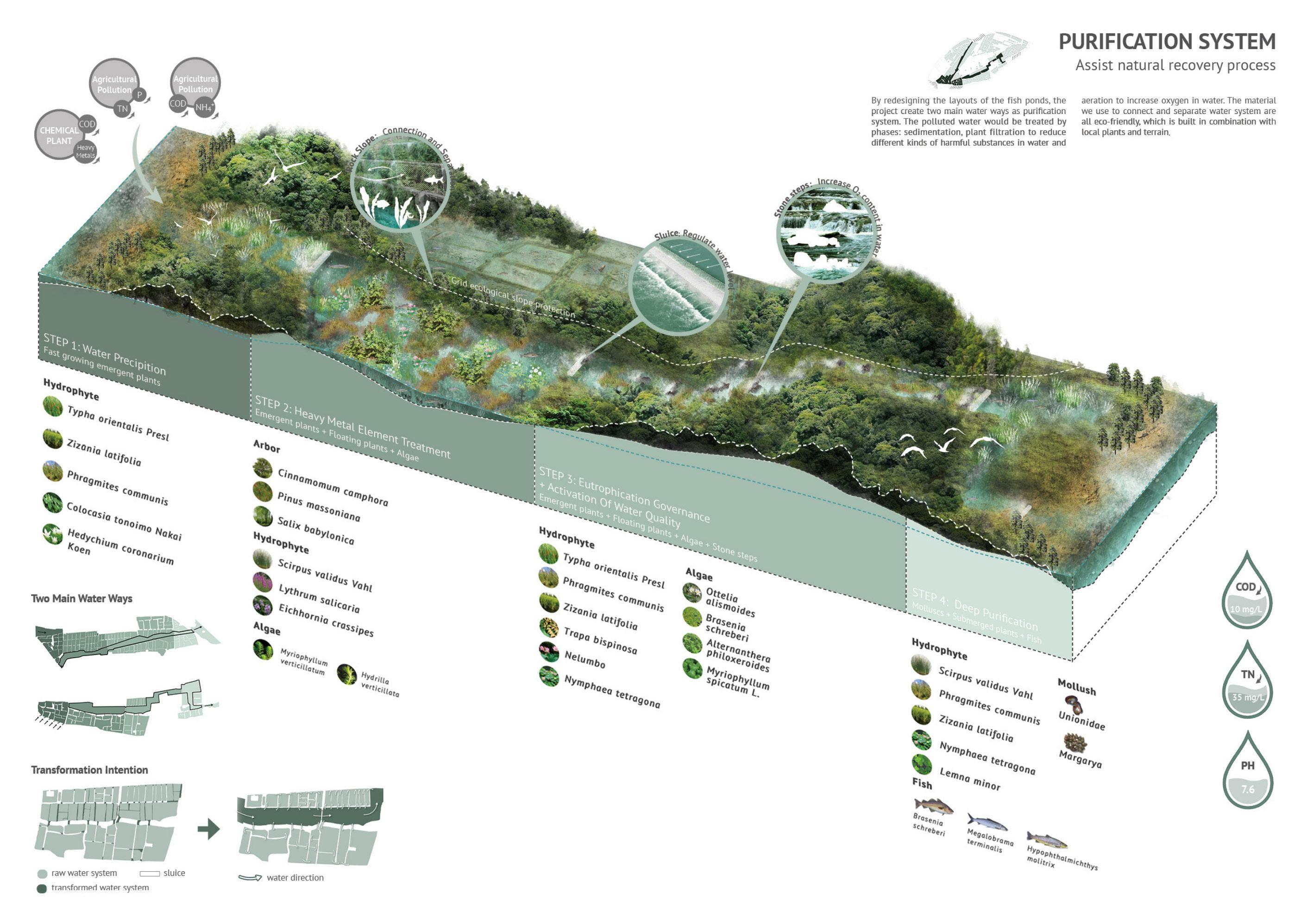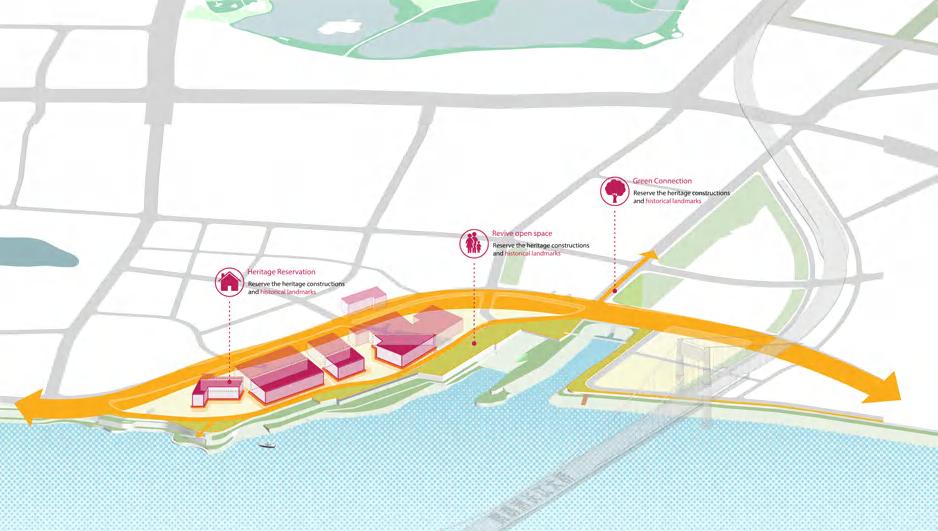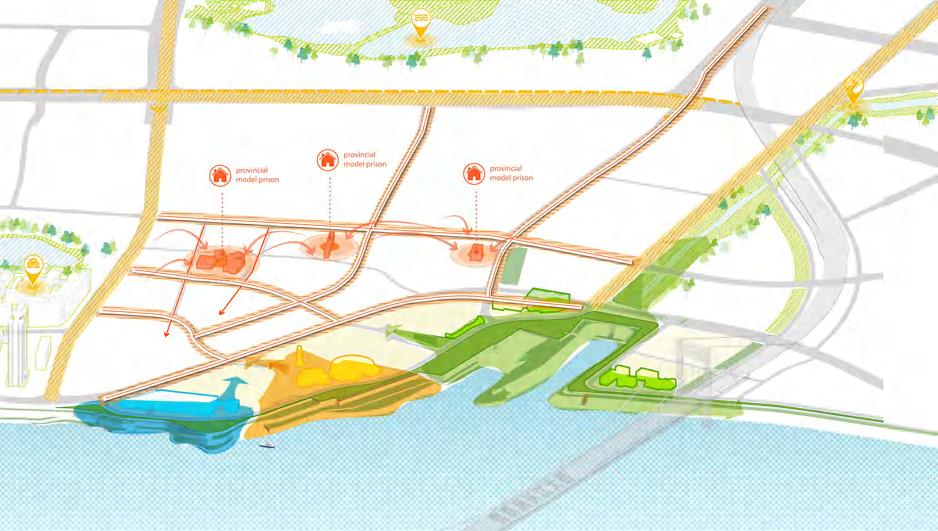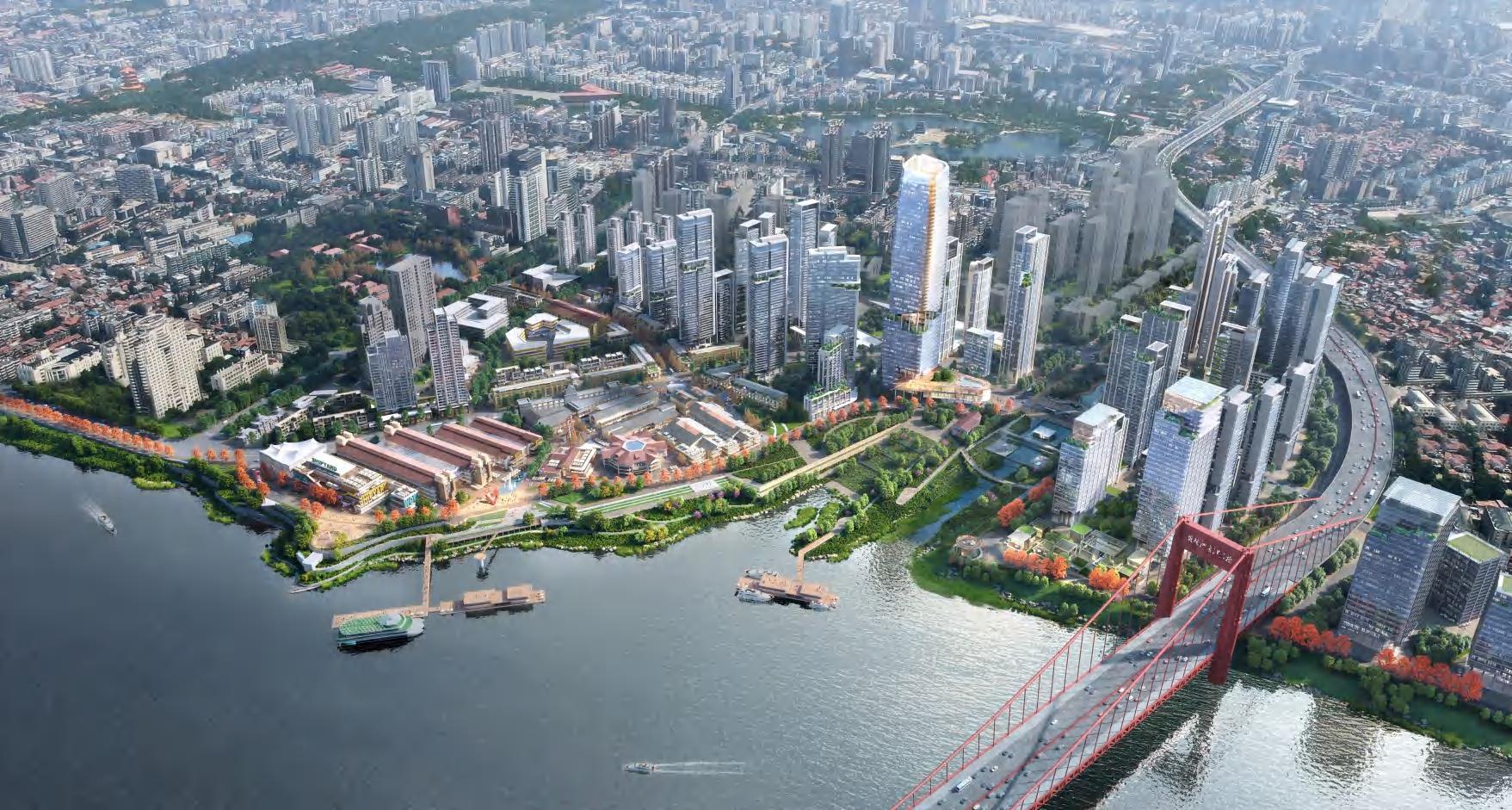EMBRACING AGRARIAN LIFE
Ecological Planning For A Shared Edible Garden
Academic Project, Graduation Design
Location: Hangzhou, China Time: 2021.2-2021.6
Type: Individual Work Tutor: Hong Zhou, email: lilyzhou@zju.edu.cn
In Qingshan village, Hangzhou, a unique garden initiative transforms an inn's backyard by respecting local agricultural practices and natural conditions. This project crafts an aesthetically pleasing, economically viable edible garden, prioritizing the growth of native crops. It not only provides a hands-on educational experience for urban visitors about sustainable agriculture but also explores synergies with the village's broader tourism development.
Villagers' Cultural Auditorium
Farmland
Dining Area
Qingshan Village Nature School Design Library

Inns Gathering Area
Due to the fierce competition in modern life, people are more likely to enjoy themselves in village.
The activities that give people opportunities to EXPERIENCE
NATURE AND AGRICULTURE WORK are the most attractive.
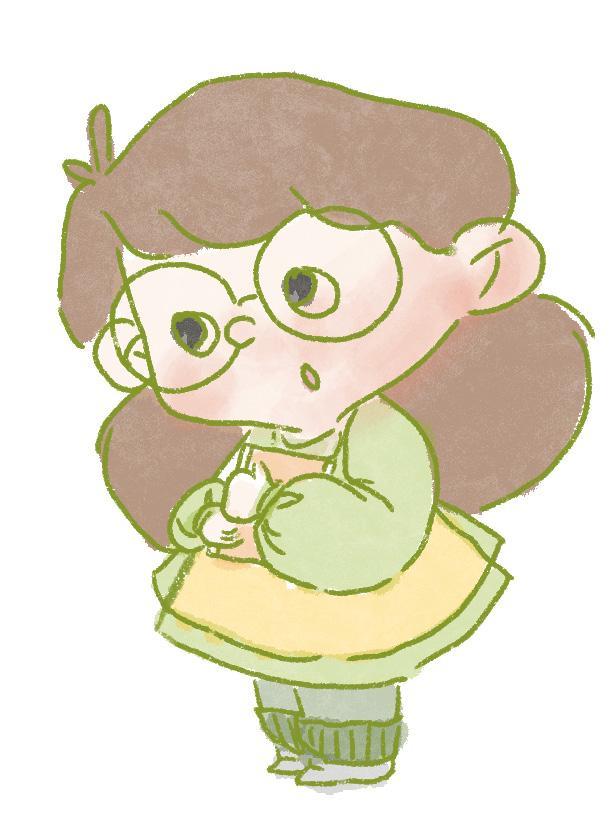


ZHEJIANG UNIVERSITY| BLA
SITE
02

GRADUATE DESIGN_EMBRACING AGRARIAN LIFE ONCE AGAIN ZHEJIANG UNIVERSITY| BLA

GRADUATE DESIGN_EMBRACING AGRARIAN LIFE ONCE AGAIN ZHEJIANG UNIVERSITY| BLA

GRADUATE DESIGN_EMBRACING AGRARIAN LIFE ONCE AGAIN ZHEJIANG UNIVERSITY| BLA

GRADUATE DESIGN_EMBRACING AGRARIAN LIFE ONCE AGAIN ZHEJIANG UNIVERSITY| BLA
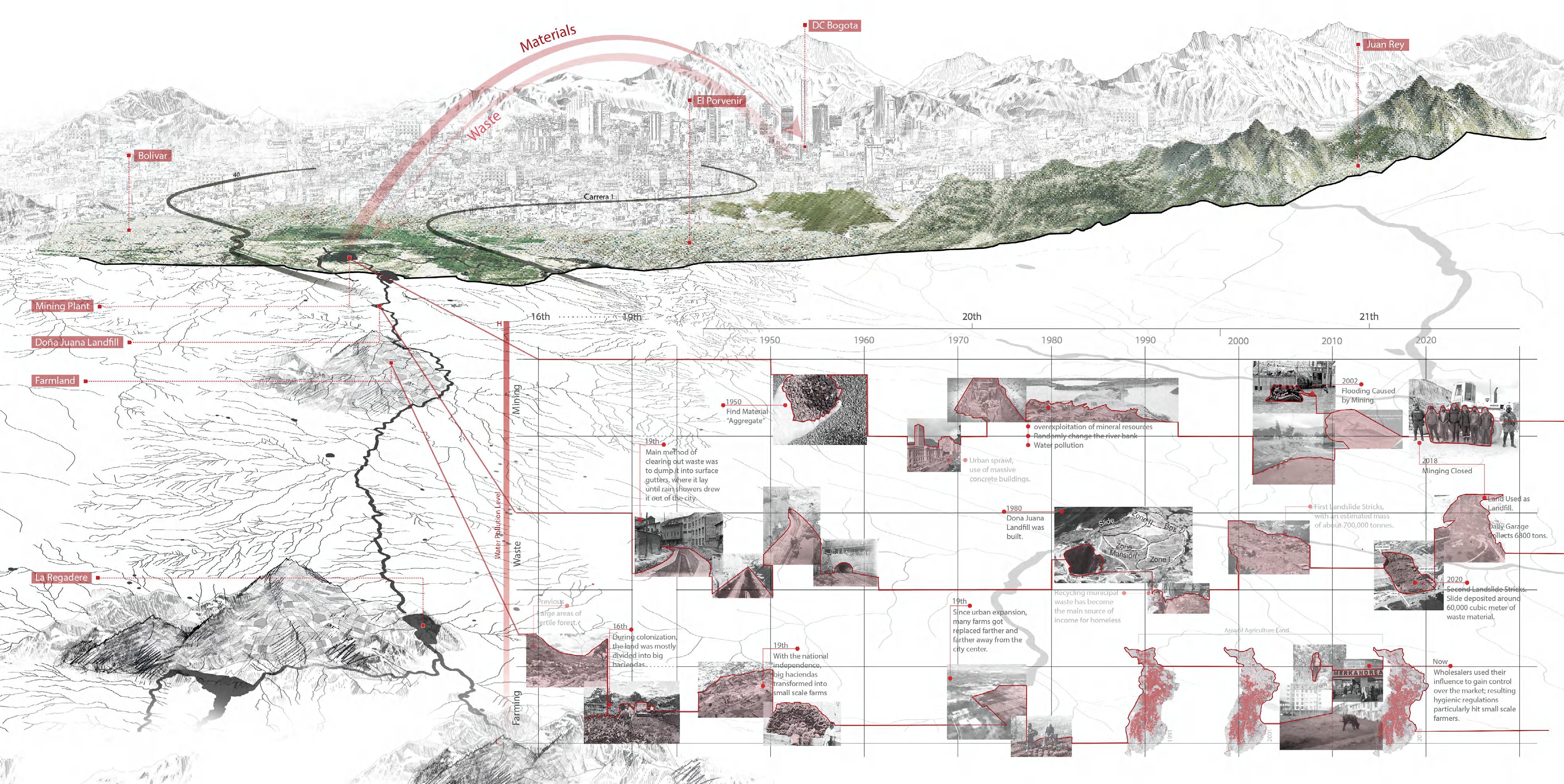
03 USME NATIONAL PARK
Expand The Sponge System Down To Protect Paramo From Urban Expansion
Location: Bogota, Colombia
Time: 2023.1- 2023.5
Team: Hanfei Fu, Wenjun Zhu, Jiani Dai, Xiutong Yu
Instructors: Kate Orff, Dilip Da Cunha, Geeta Mehta, E Thaddeus Pawlowski, Cesar Delgado, Adriana Chavez, Maria Palomares Samper
The Tunjuelo River, which originates in the Sumapaz Paramo south of Bogota, is a vital source of water for the city. However, ill-managed growth of the city has endangered both river and community, causing landslides, flooding, and pollution. Usme National Park aims to revitalize the ecosystem of the Tunjuelo River and strengthen the connection between the city and the Paramo. The strategy includes cleaning the river, establishing ecological buffers, creating sustainable communities for a clean watershed, and promoting eco-tourism to highlight the importance of Sumapaz Paramo's protection. We foresee Usme National Park being a vital catalyst in restructuring south Bogota, providing people with a natural resource while enhancing the environment.
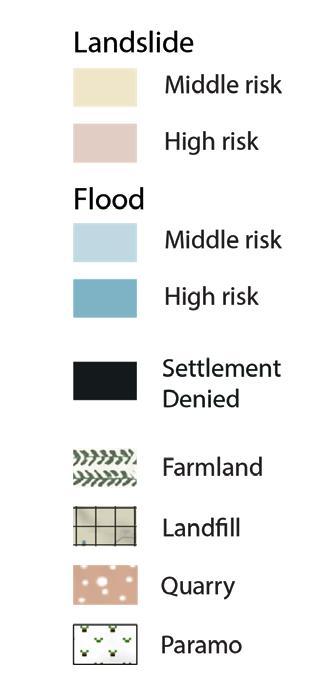
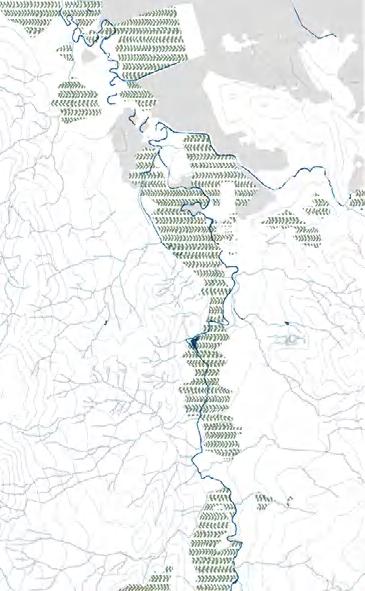


UD STUDIO - USME NATIONAL PARK
COLUMBIA UNIVERSITY| GSAPP| MSAUD 1967 Tunjuelo river worked as a portable water source 1992 The city extracted concrete along riverland 2023 Pollution, flooding, a dried sponge
01 Urban Expansion In Process
The urban area is expanding. It is taking MUISCA traditional farmland and heritage. Farmers have to look for higher farmland even near the paramo.


02 Landfill Mountain With Landslide
The only landfill of Bogota, Doña Juana landfill, is in proximity to the Tunjuelo River. It is polluting the environment through the waste liquid and toxic gas.
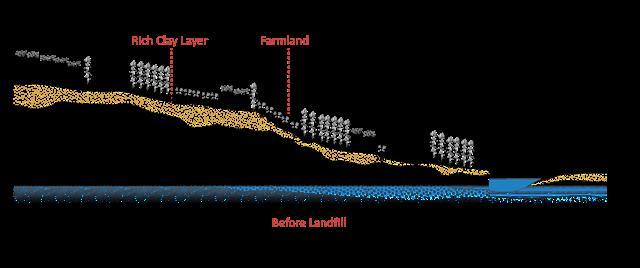

03 Mining Activities Causing Barren Lands
Following mining activity, there has been a surge in the construction of self-built housing amidst barren mountains. Residents in these areas are exposed to housing risks and air pollution, which are causing significant suffering.

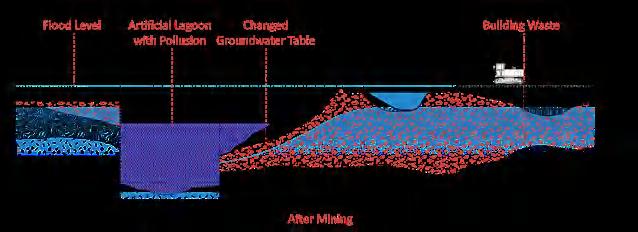

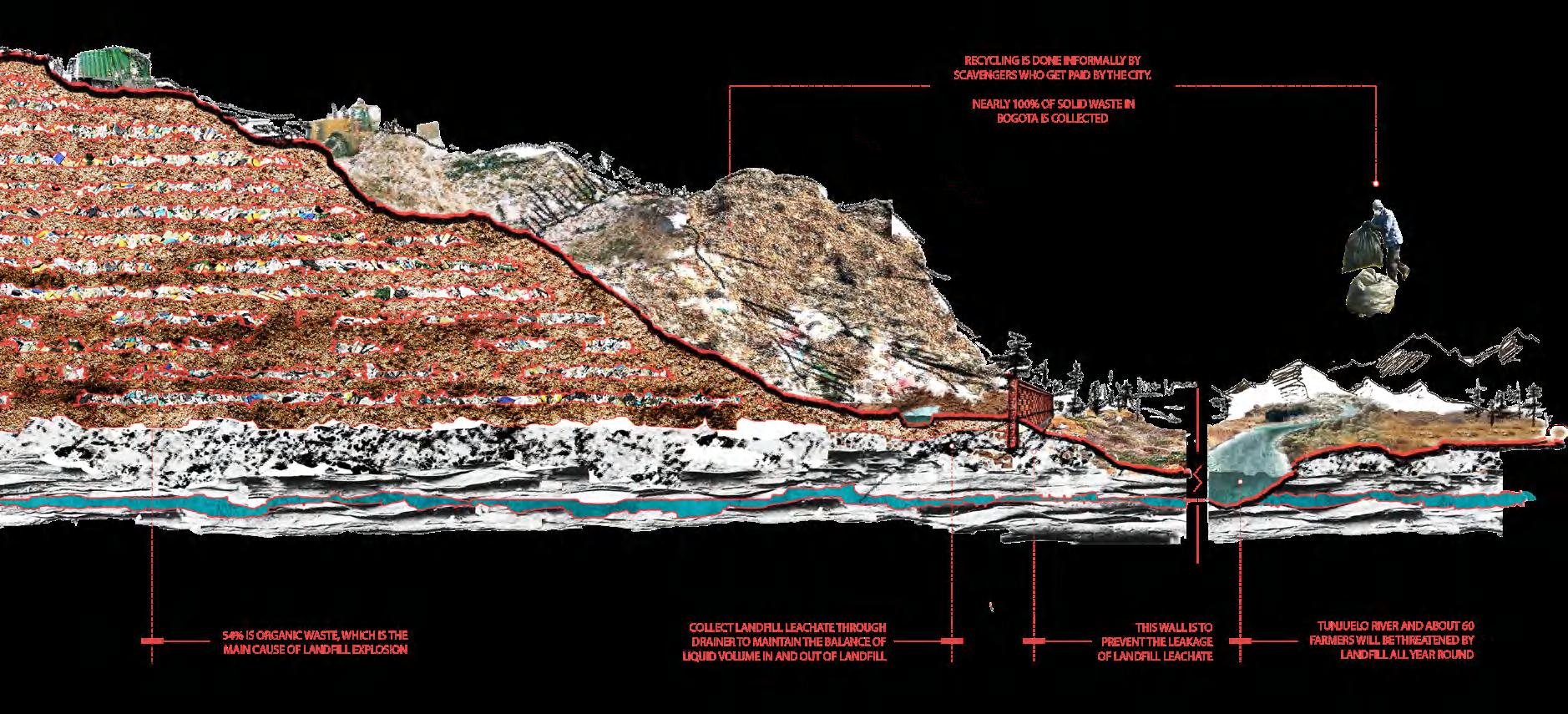
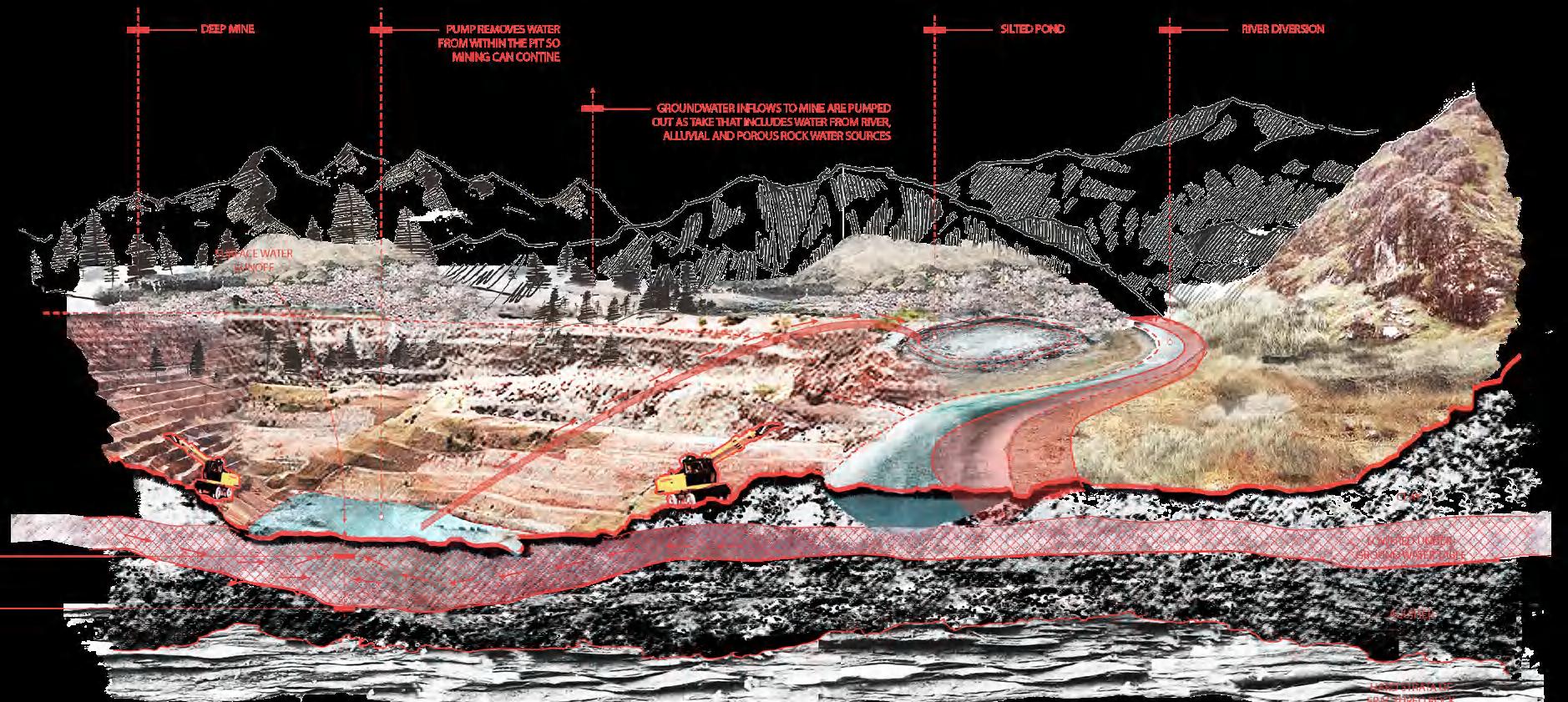
The Transition Process
First, We propose to Filter the river by reshaping the riparian zone, establishing buffer areas, and restoring native species. Second, we want to Connect through the Sponge of Culture. We want to create an experiential trial to absorb the indigenous culture and engage people in local activities. Last, we want to Activate through the Sponge of Densification. It can absorb excessive urban expansion, and transform it into sustainable communities through green infrastructures.

UD STUDIO - USME NATIONAL PARK
COLUMBIA UNIVERSITY| GSAPP| MSAUD
Sponge System
We envision PARAMO and USME as a huge sponge that not only preserves clean water but also enriches the local culture. This transformation process can absorb the natural resources found on the site and convert them into a better living environment
Pollution (Waste/ Mining)
Ecosystem Sponge FILTER
Culture Sponge
Losing Culture (MUISCA/ Culture Identity)
Clean Water Vegetation

Community Sponge CONNECT ACTIVATE

Urban Expansion
Tourism/ Educaton Sustainable Community Activities Infrastructure


UD STUDIO - USME NATIONAL PARK
COLUMBIA UNIVERSITY| GSAPP| MSAUD
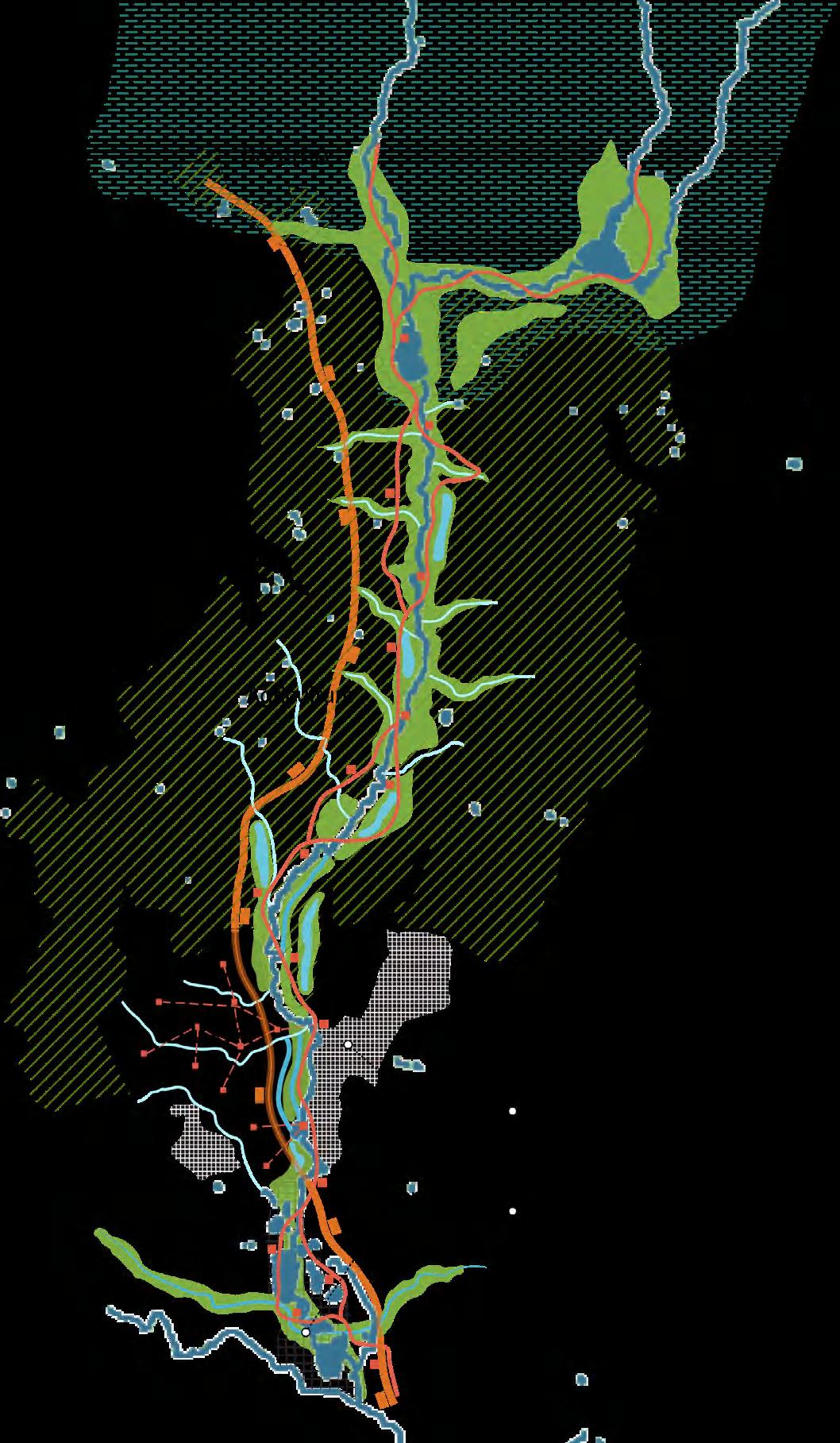
Three Testing Fabrics Of The National Park
Based on 3 different fabrics, we chose highland, Usme Community and Cemex as our testing sites. We will test the three strategies connect, filter, connect and activate to create a new vision for Usme National Park.
Our design will preserve the Paramo ecosystem, while expanding permeable soil to foster sustainable agricultural and urban expansion.
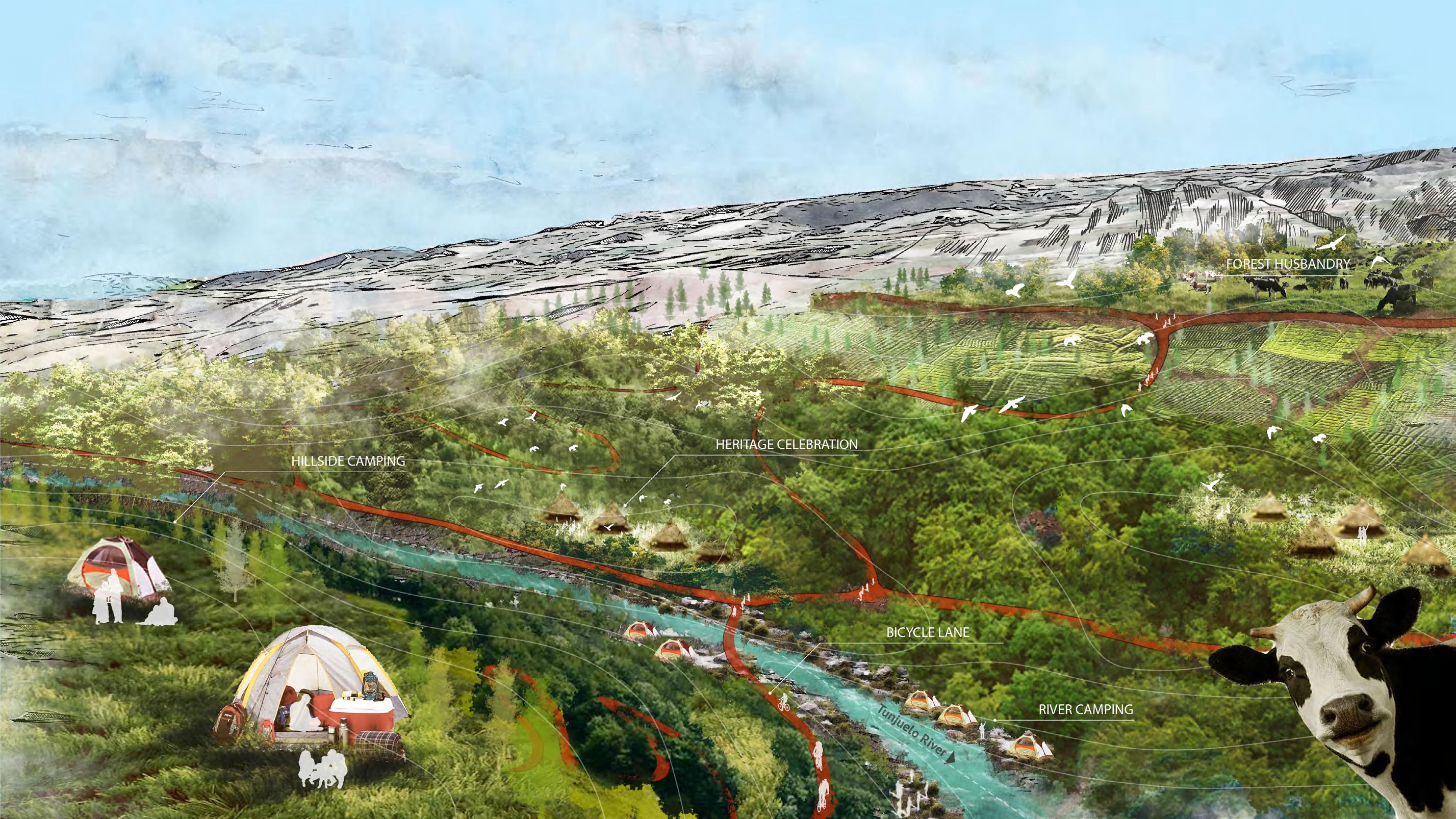
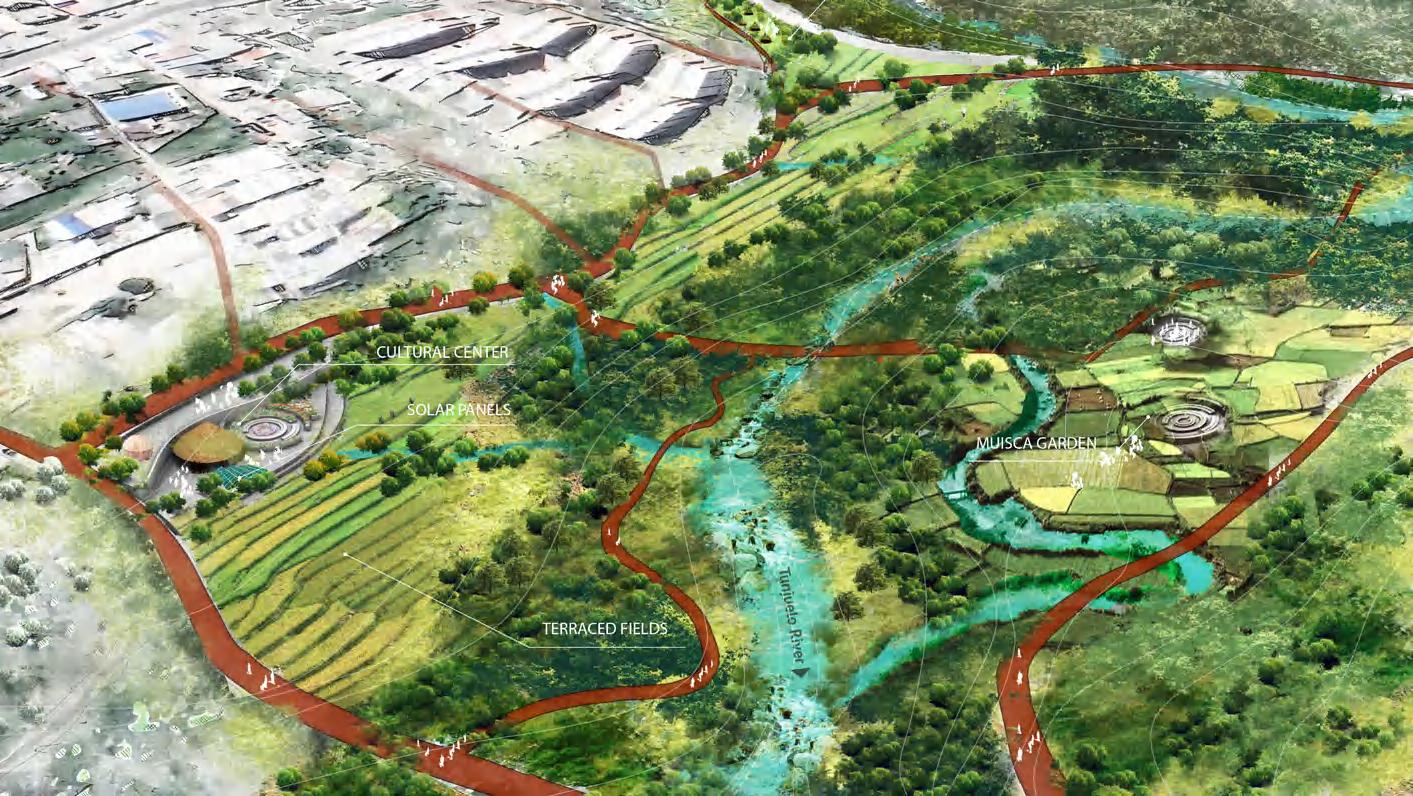

01 TUNJUELO HIGHLAND 02 USME COMMUNITY 03 CEMEX MINE 02 UD STUDIO - USME NATIONAL PARK 03 COLUMBIA UNIVERSITY| GSAPP| MSAUD
Ecological Restoration and Salt Industrial Renewal of Ancient Sea Salt Field
Academic Project
Location: Danzhou, Hainan, China
Date: 2021.10-2021.12
Type: Individual Work
Tutor: Cindy Xu, e-mail: lelezhuxule@126.com
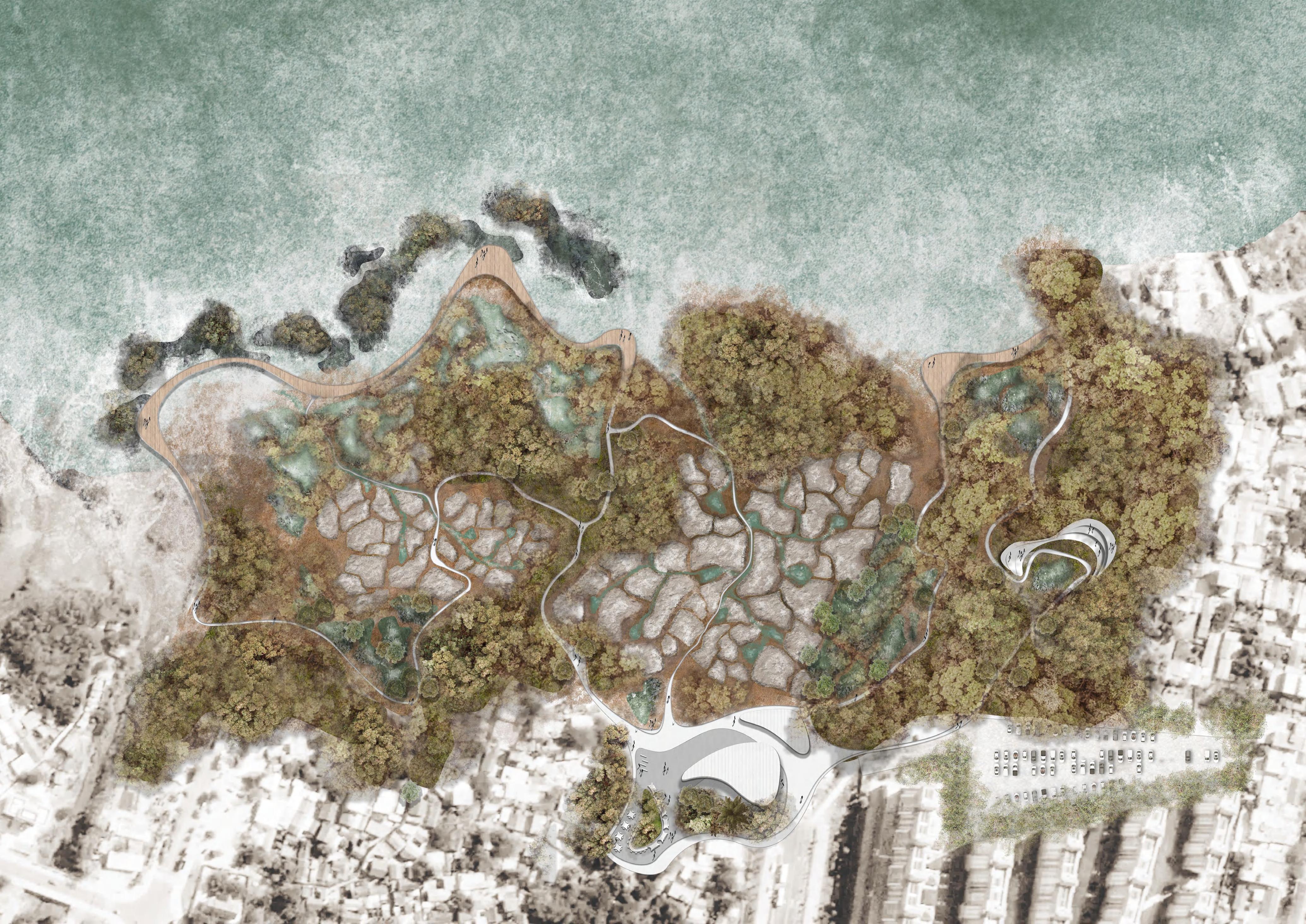
1 1 3 3 10 10 11 11 6 6 6 4 4 7 7 9 9 8 8 14 14 15 15 16 16 12 12 13 13 5 5 5 2 2 STEP 1 Restore the
: Resist environmental threats STEP 2 Rebuild The Sea Salt Industry: Protection of cultural heritage STEP 3 Expand Tourism: Combination of education and environmentalprotection Habitat Breakwaters Sustainable Floating Boardwalk Parking Lot Main Salt Fields Ecological Aquatic Ponds ( abandoned salt field ) ) Salt Field Interactive Platform Amphitheater Existing Villager Pond Restored Mangrove Meadow Habitat ( abandoned salt field ) Viewing Pavilion Salt Product Market Settlement Buffer Zone Ancient Village Settlement Restored Typical Mangrove Habitat ( abandoned salt field ) Visitor Center Ancient Salt Tower N 5 0 10 20M
Ecosystem
04 GIFTS FROM THE SEA
COASTAL RESILIENCE_GIFTS FROM THE SEA ZHEJIANG UNIVERSITY| BLA
Restore The Ecosystem
Resist Environmental Threats
The site is facing up to the challenges including mangrove degradation, coastal erosion, decline in seawater quality and other problems, which seriously threatens the production of sea salt. To build up a productive landscape, we need to establish a sustainable ecosystem. The introduction of the breakwaters could help to establish
a healthy ecosystem, at the same time to reduce pollution and help the erosion problem. The site had a lot of bare spots. Reintroducing different species of mangroves into the site brings back the diversity of the space and creates a very high value habitat. It can also be used as a resource for the tourism on the site.

TOOLKIT





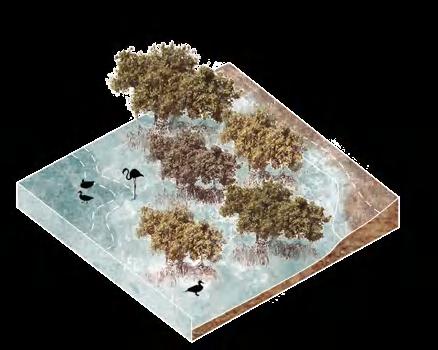
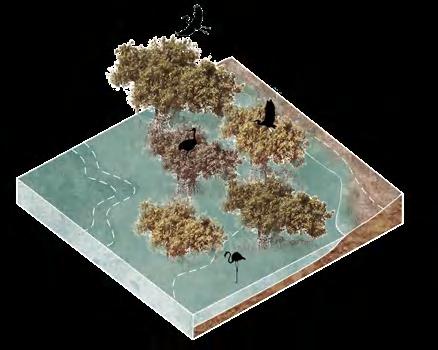
Eastern Oyster Tidal Planter
Stabilize the slope and filter water
Abandoned Limestone Salt Tank
Effectively attract oyster seedlings
Create a habitat for shore -line animals


Nutrition N/P Impurities Clean Water Dig And Pile Abandoned Salt Field
Ecological Aquatic Ponds hightide hightide lowtide lowtide COASTAL RESILIENCE_GIFTS FROM THE SEA ZHEJIANG UNIVERSITY| BLA
Restored Typical Mangrove Habitat Restored Mangrove Meadow Habitat
Expand Tourism
Combination Of Education And Environmental Protection
Seperated circulation system allows the site to work effeciently as a working landscape to produce the sea salt and at the same time create very rich tourism experience for visitors.
FEEL CHARM OF TRADITIONAL SALT INDUSTRY
1. Science education
2. Productive and performative landscapes
3. Display unique natural coastal scenery
HUMAN INTERACTION WITH DIFFERENT AREA
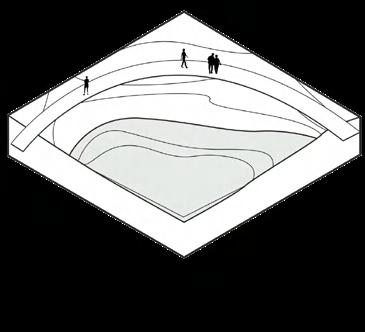
Fish Pond
Some fishs are cultivated in the abandoned salt fields

Floating Boardwalk
Feel the habitat waterbreaks closely
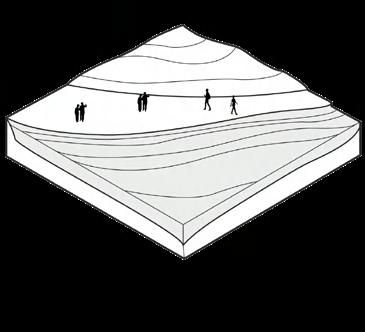
Platform
Reduce the distance between people and the sea
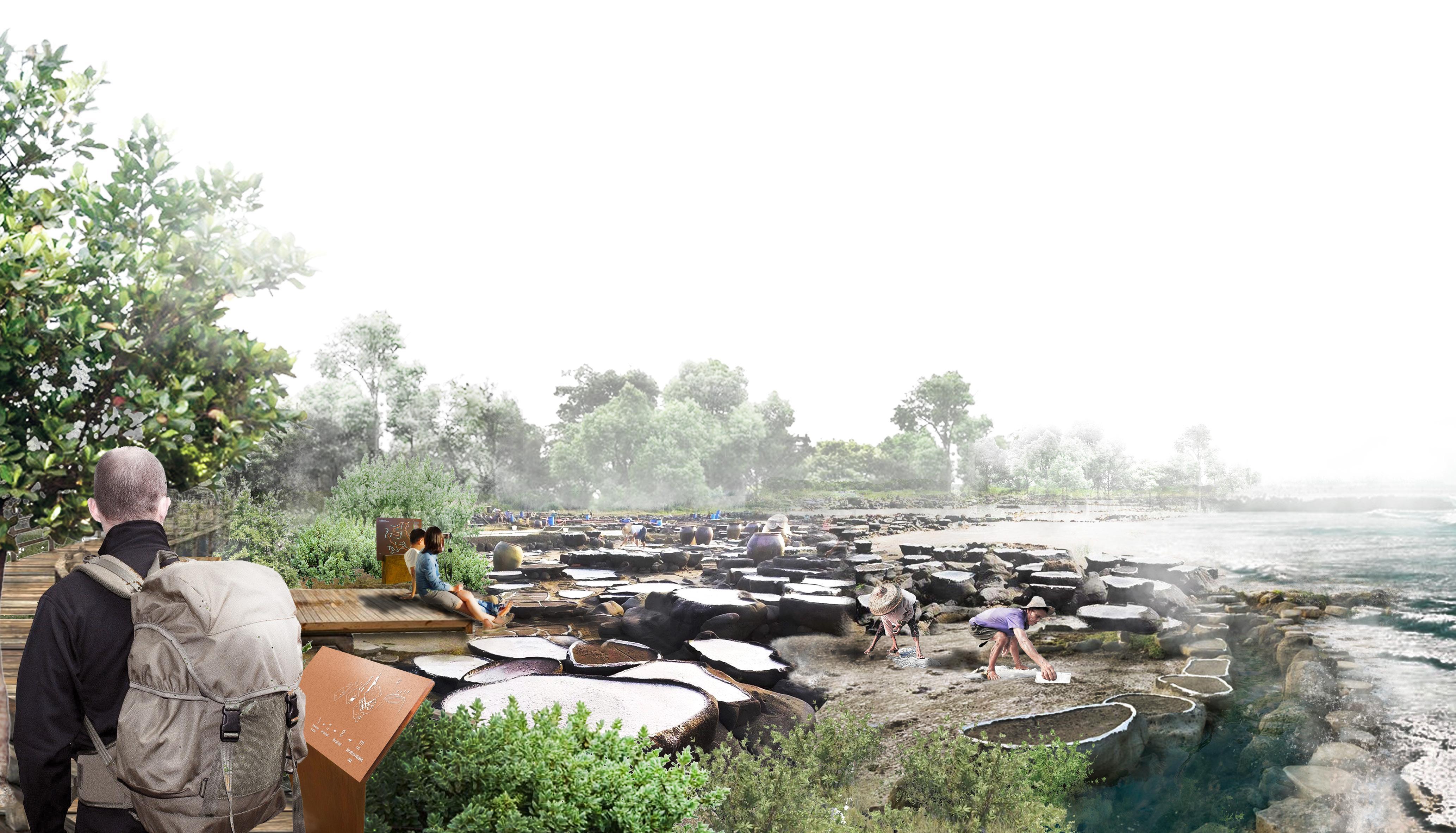
Boardwalk






Viewing Deck
Guide the route and protect the salt fields
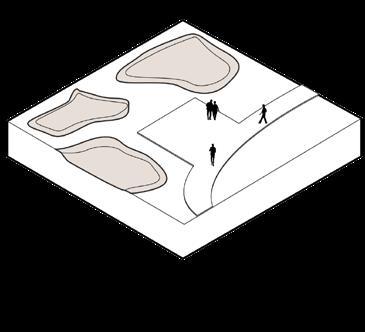
Get close to the salt fields

Pavilion
See the overall scene
Amphitheater
Watch the performance on the water stage
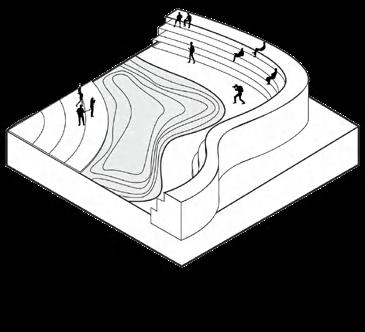

Forest Walk
Enjoy the quiet forest

Wetland
Tourists are surrounded by water at high tide
SEA SALT FIELDS
MANGROVE
Mangrove buffer Platform
Boardwalk
1 2 3
Canal and farmers' path
COASTAL RESILIENCE_GIFTS FROM THE SEA ZHEJIANG UNIVERSITY| BLA
Revitalization Of A Declining Mall
Location: Atlanta, GA Time: 2022.9- 2022.12
Team: Wenjun Zhu, Hongfeng Wang
Course: Urban Design Studio II
Instructors: Emanuel Admassu
Property is a phase of prosperity that can lead to an improved quality of life and opportunities for the community at a certain time. However, it is used and controlled by capital, and flows with the flow of capital, regardless of the negative effects it causes and leaving behind only the remains of the former prosperity. This kind of Property is an irresponsibility and a disrespect to great memories.
Greenbriar Mall lost its prosperity of capital and consumption, but its role as the center of the community's youth and social activities still made the community consider it as a hood mall. And this phenomenon has inspired our vision for Greenbriar Mall. The project illustrates how the space of greenbriar mall can be intervened and absorbed by the activities of youth, but it was never to discontinue the existing relationship between the community and the Greenbriar Mall.

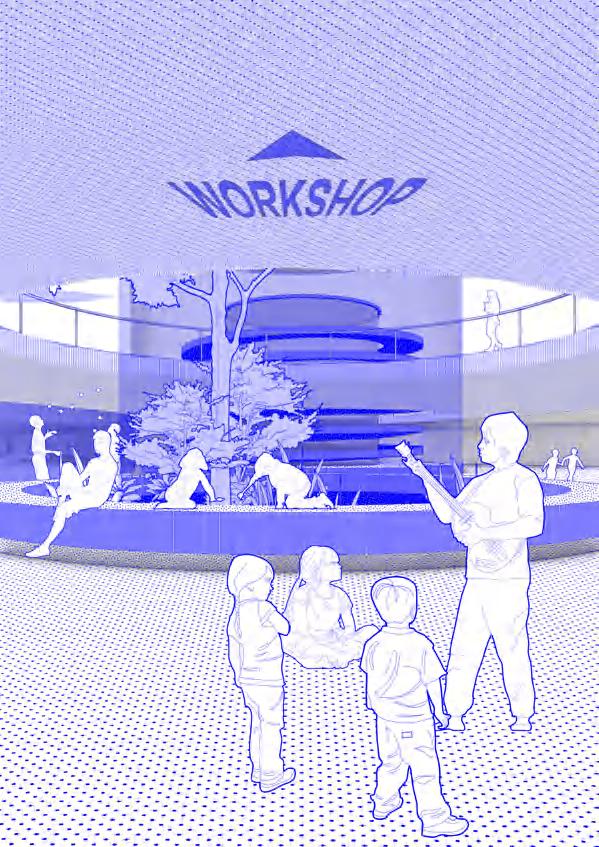
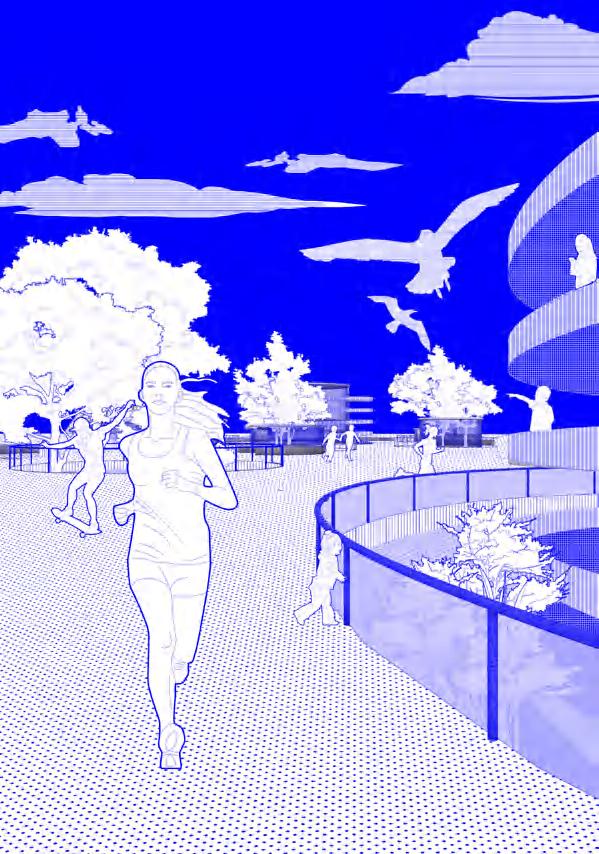
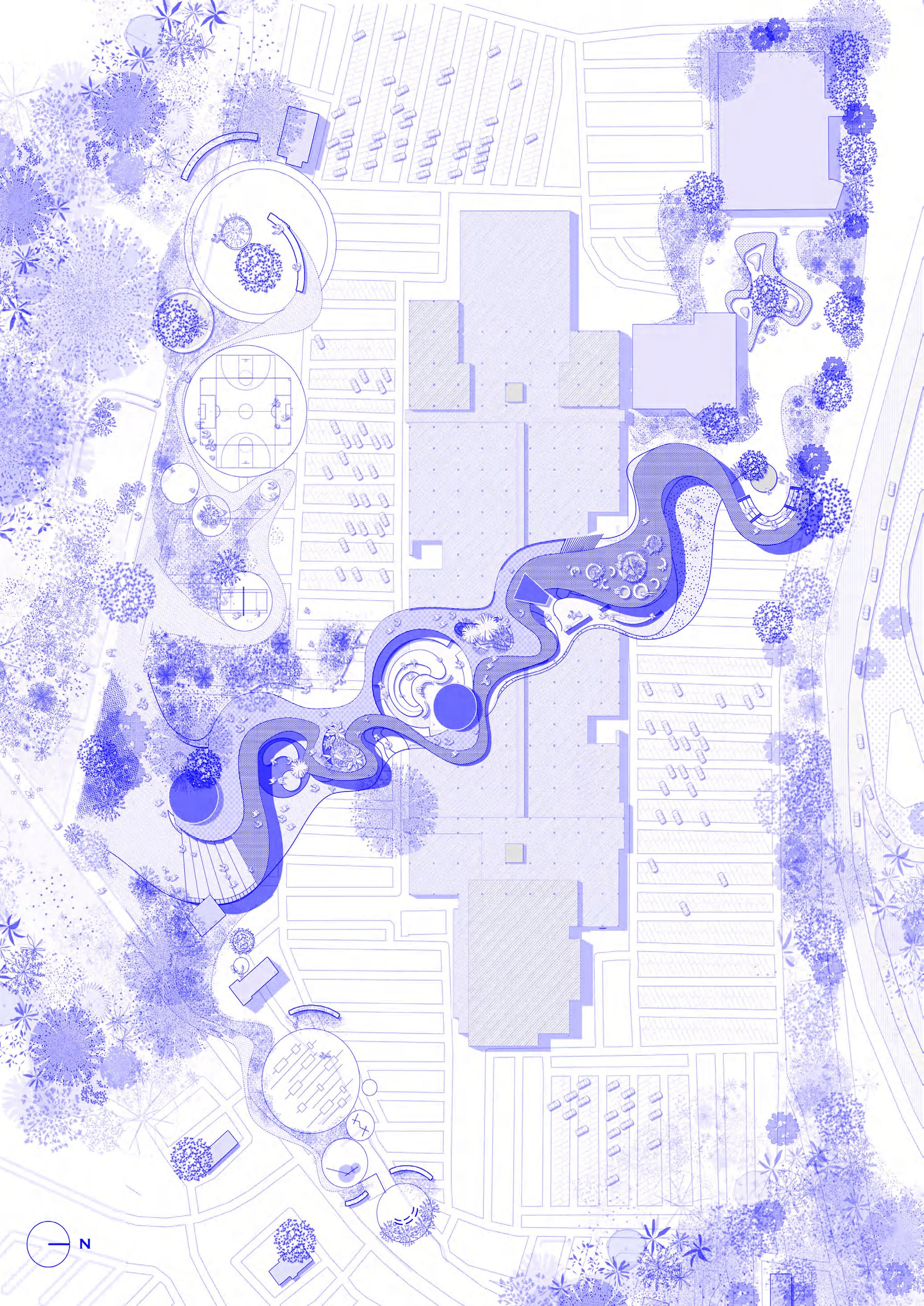
05 AFTER PROPERTY
UD STUDIO - AFTER PROPERTY COLUMBIA UNIVERSITY| GSAPP| MSAUD
Unlike other malls in America, youth are being told what they cannot do and where they cannot go, Greenbriar palace should give young people enough imagination and decision-making power, allowing them to decide the functionality of the space by their needs at different times. So space in Greenbriar Palace is mean to be open-ended within certain set-up perimeter. For example, the project will establish garden spaces with seating for community gatherings, convert semi-enclosed areas into workshops and job training centers for youth, and develop semi-circular spaces as amphitheaters or cinemas for events.
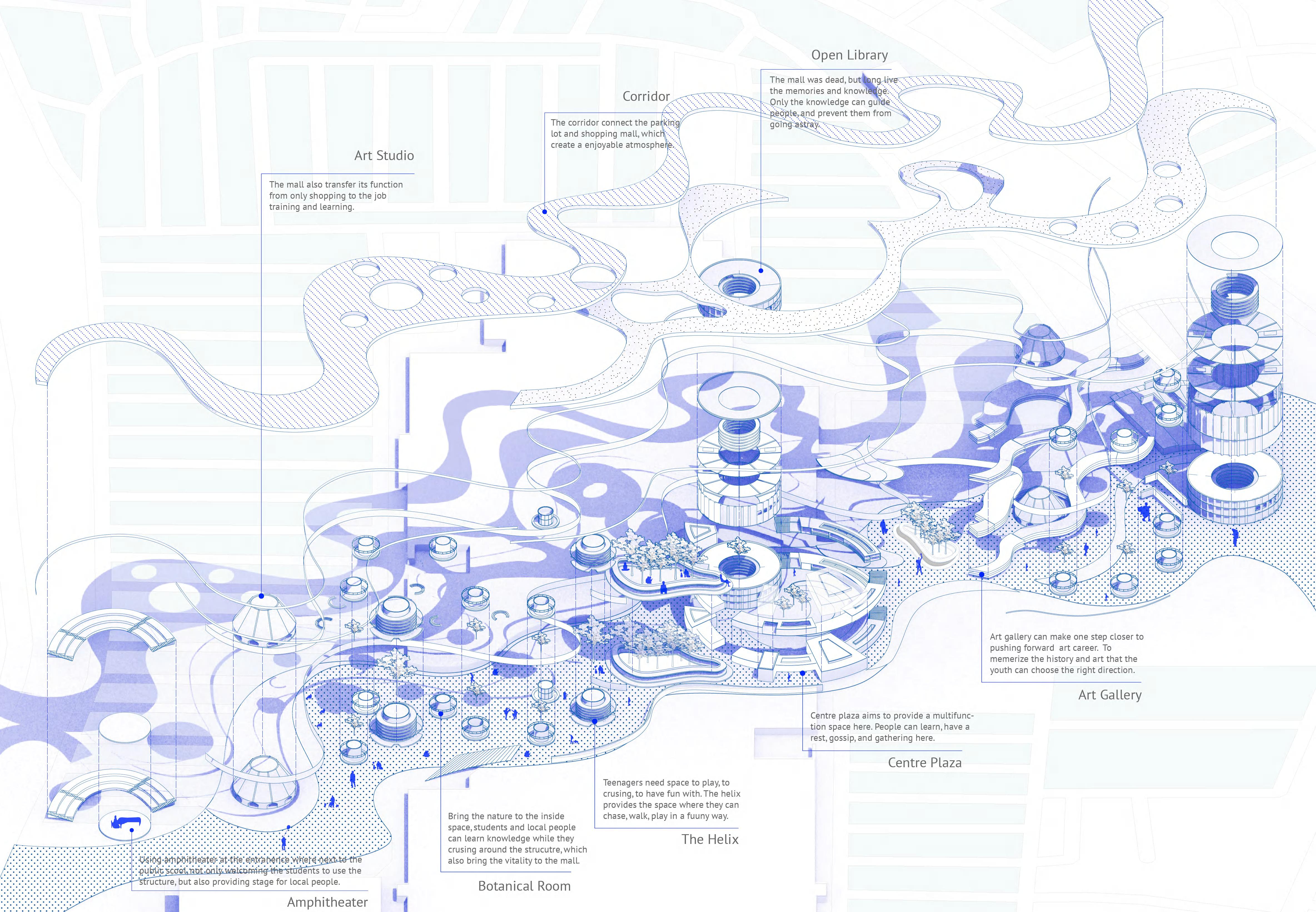
UD STUDIO - AFTER PROPERTY COLUMBIA UNIVERSITY| GSAPP| MSAUD
FENGXIAN DISTRICT MASTER PLANNING
Professional Project, Urban Design Internship
Company: AECOM, Shanghai
Location: Shanghai, China Time: 2023 Summer
Team Member: Dian Pan,Wenjun Zhu
Supervisor: YuHeng Chiang
Role: Engaged in the initial land use planning phase, developed the sustainable development plan for Shanghai's Fengxian District.

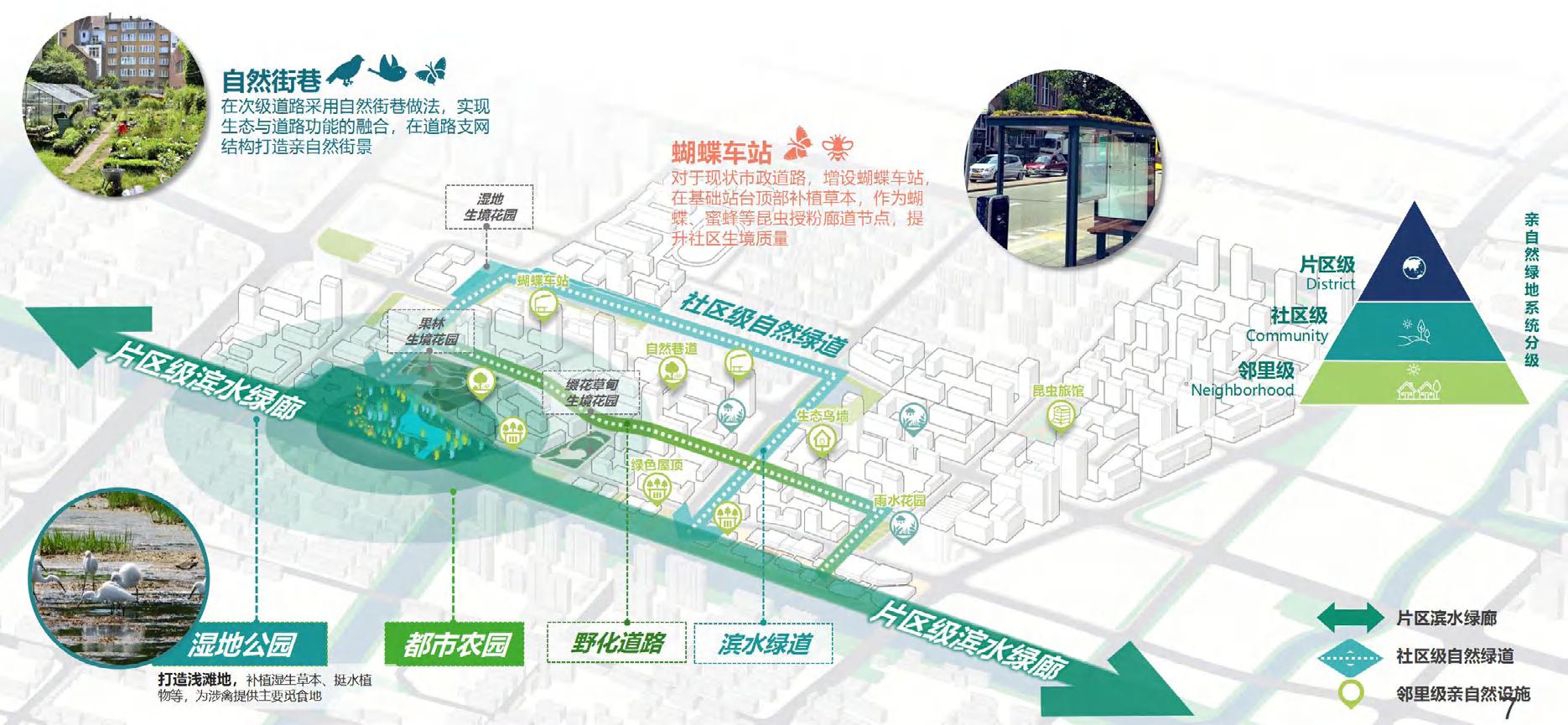


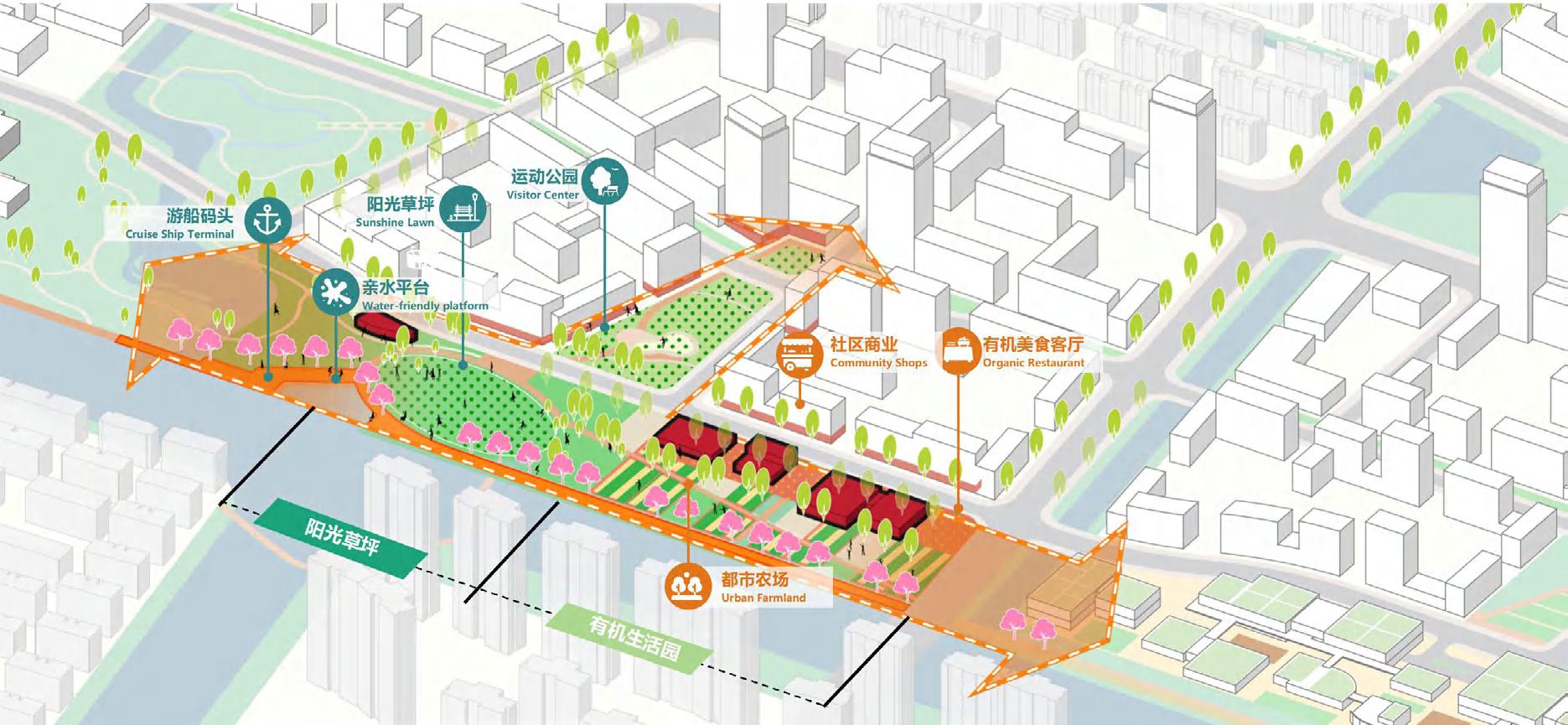
07
URBAN DESIGN INTERNSHIP_FENGXIAN MASTER PLANNING AECOM | SUMMER INTERNSHIP

08 CREATION OF A FLOOD MODELING CENTER
Location: Miami- Dade County
Time: 2024.1- 2024.5
Course: Landuse and Environmental Modeling
Tutor: Michael Fichman
Establishing the FIMPC is a critical step in combating the flood risks brought about by climate change. By centralizing expertise and technology, we can better assess and forecast future risks, providing a solid scientific foundation for decisions at local, regional, and national levels. By acting now, we can effectively mitigate the impacts of climate change, protecting people and infrastructure from future flood threats.
Financial Support:
Analysis of Local Mitigation Strategies (LMS) Projects Distribution reveals that each municipality’s financial commitment and funding allocation for flood response vary. This also might reflect the different levels of external financial aid and the varying degrees of public and stakeholder awareness about flooding response.
Inter-Municipal Cooperation:
The efficacy of FIMPC is challenged by disparate objectives across municipalities and regulatory impediments that limit data sharing and cross-jurisdictional collaboration.

A D AE VE

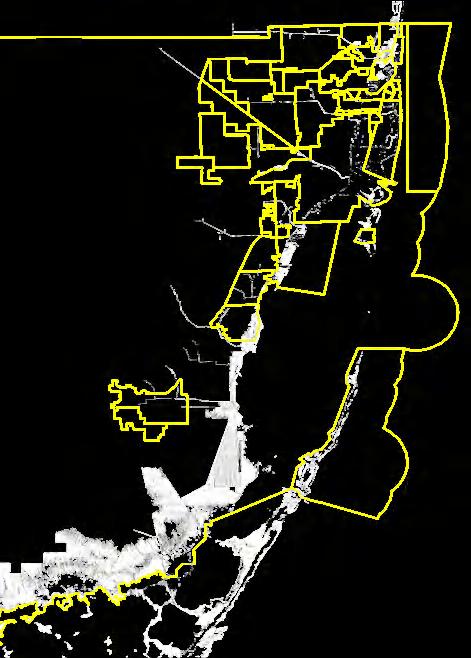
AH X 1-feet Sea Level Rise Prediction
FEMA Flood Zones:
This map shows some zones is at high risk of flooding, potentially qualifying as part of the 100-year floodplain.
1- Feet SLR:
Predicting a 1-foot sea level rise reveals significant threats to Miami, underscoring the urgent need to establish FIMPC.

Maximum Envelope of Water
20 feet
Storm Surge Zones:
5 feet
The threat of storm surge to Miami is also very serious. When the storm surge comes, most areas will be in crisis.
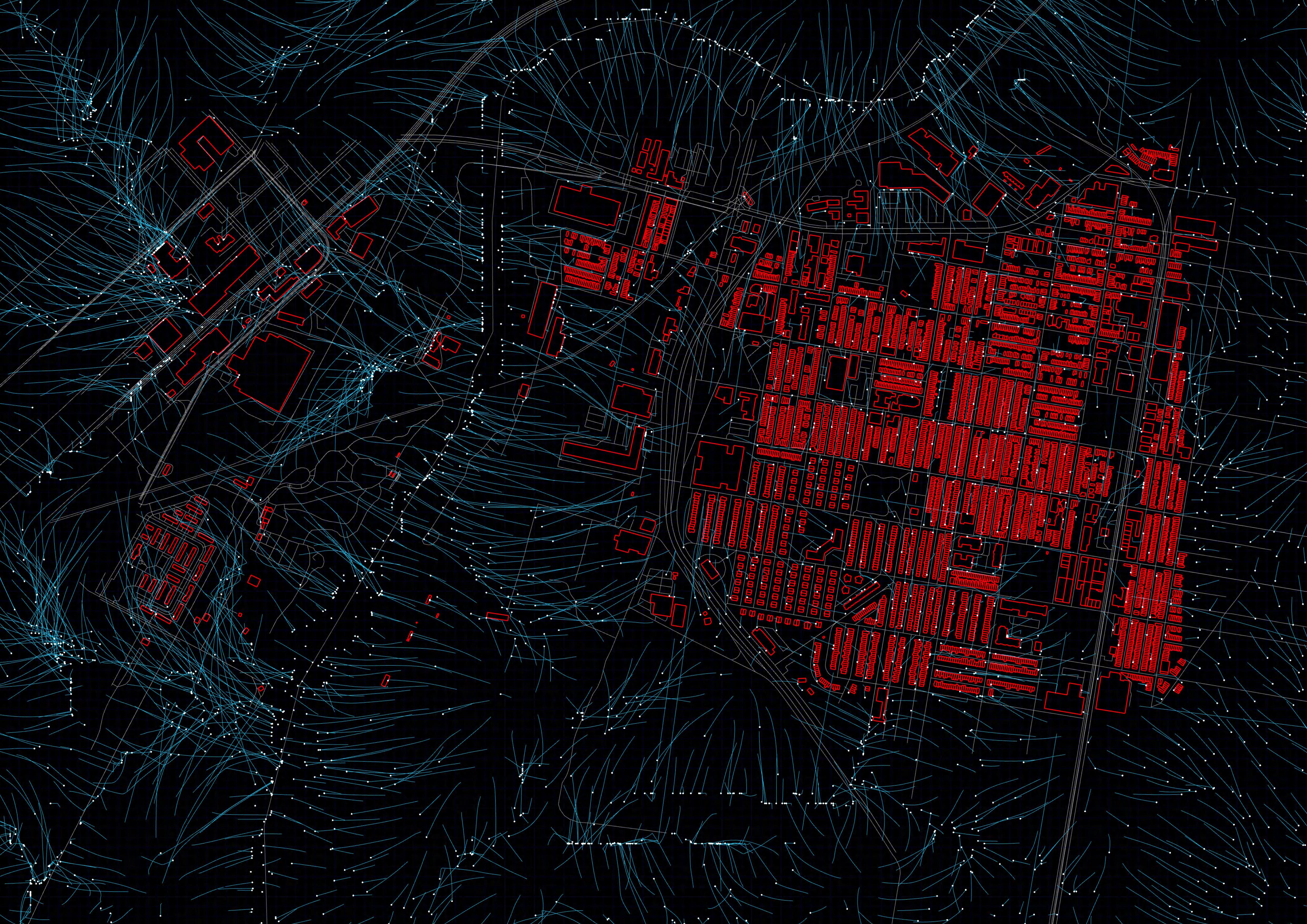
DYNAMICS SIMULATION
Hydrological Analysis Using Rhino and Grasshopper
09 COMMUNITY
SURFACE RUNOFF
Project Type: Individual Work Location: Grays Ferry, Philadelphia COMMUNITY SURFACE RUNOFF DYNAMICS SIMULATION UNIVERSITY OF PENNSYLVANIA | MCP
10 THE FABRIC OF GROWTH
Mapping and Collaging Shenzhen's Development
Course: Recombination Urbanism Location: Shenzhen, China
Time: 2023.9-2023.12 Semester: 2023 Fall
Tutor: David Grahame Shane
After the reform and opening up, Shenzhen changed from horizontal dual-core to multi-centered development. From 1978, lots of non-local moved to Shenzhen and became the first generation of builders. It started with Luohu and Baoan County as the core and began to spread the development and construction in all directions.
Master Plan of Peral River Delta Region
Through the expansion of settlements and the enrichment of transportation hubs, the core areas became more connected and formed the metropolitan area.


Shenzhen Changing through Reform and Opening

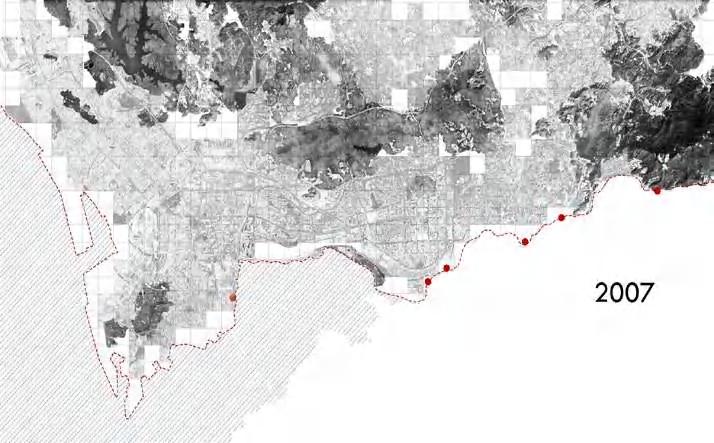

Old Town Life In Luohu District
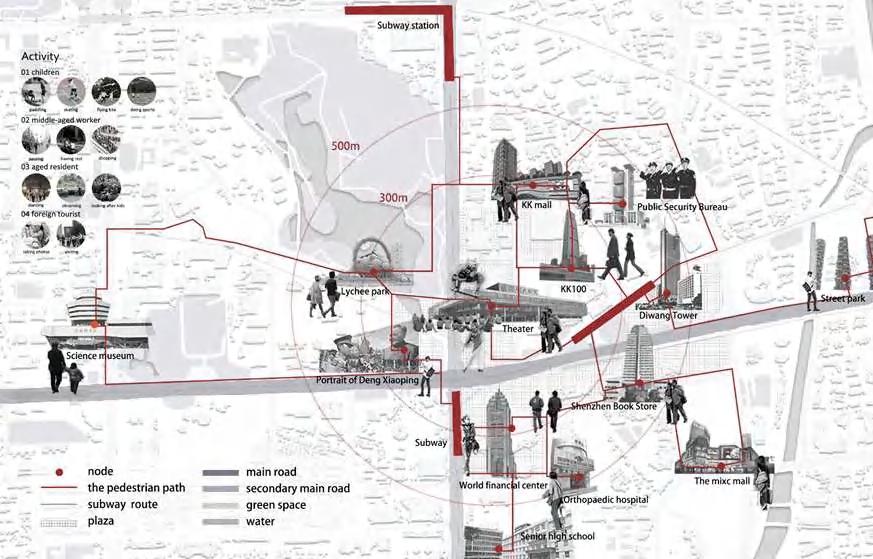
RECOMBINATION URBANISM_THE FABRIC OF GROWTH
COLUMBIA UNIVERSITY| GSAPP| MSAUD
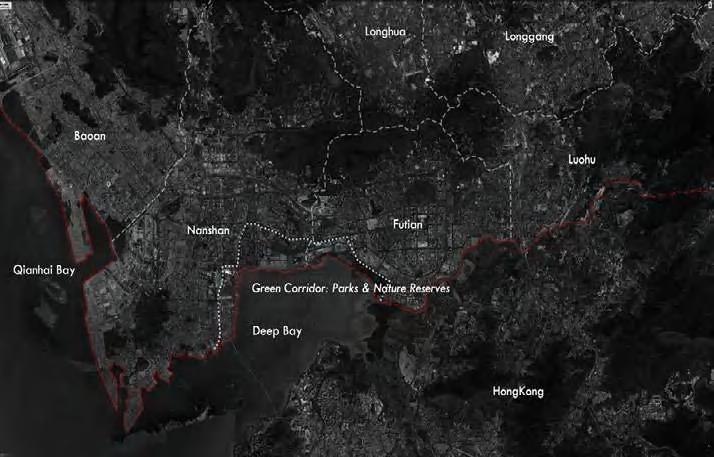
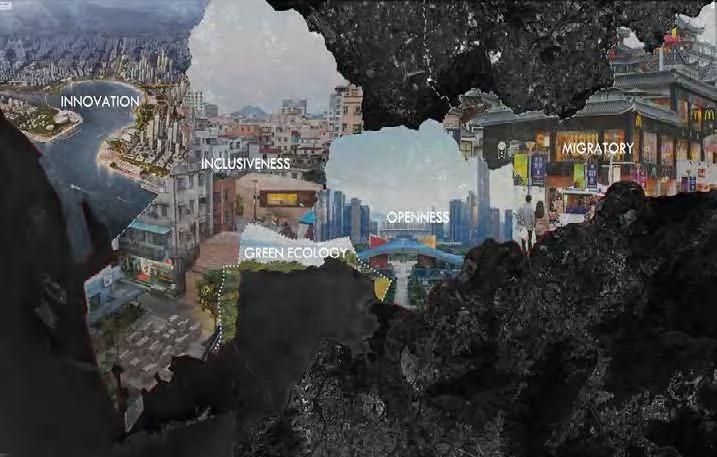

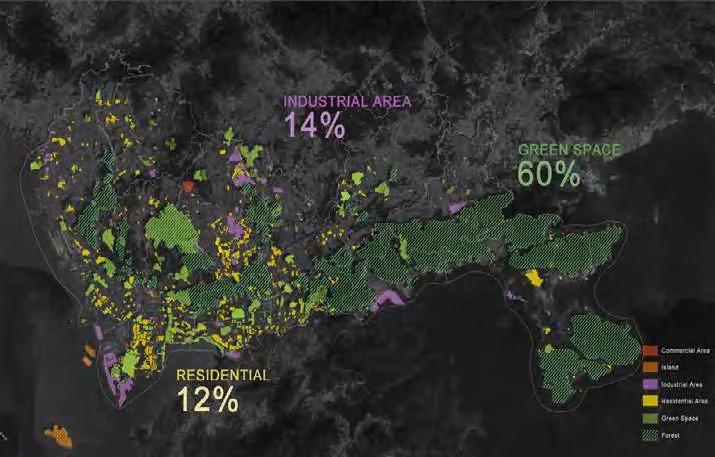
Sample Center Core RECOMBINATION URBANISM_THE FABRIC OF GROWTH
Population Migration
COLUMBIA UNIVERSITY| GSAPP| MSAUD
Diversity of Shenzhen
Existing Land Use
Proficient in identifying plant traits (stature, morphology, coloration) and bloom cycles, particularly in ornamental species, adept at orchestrating diverse plant combinations into cohesive landscapes. Experienced in small-scale landscape design, including trailside and intimate courtyard settings. Demonstrates expertise in conceptualizing and articulating design visions through hand-drawn illustrations. 1.
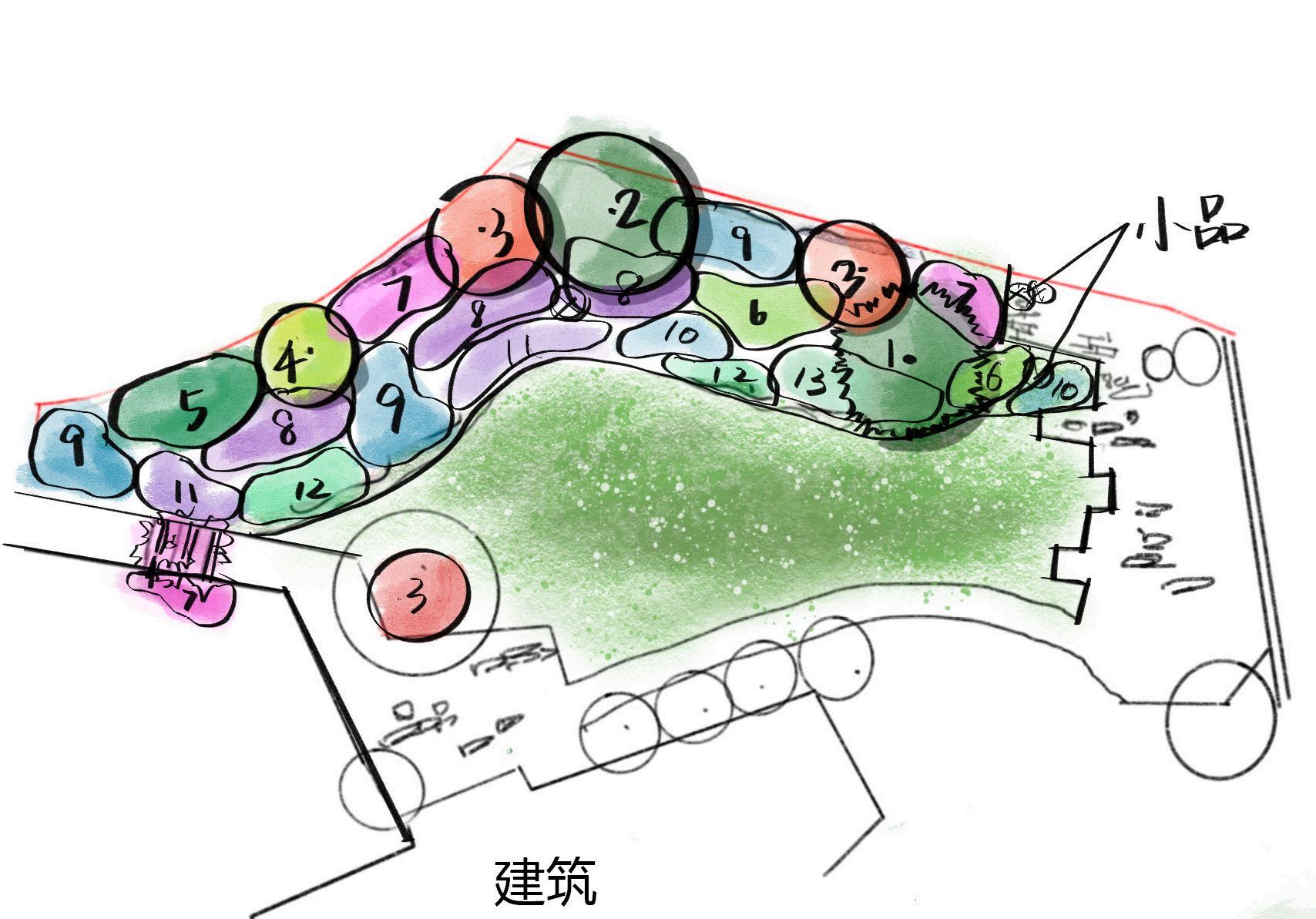


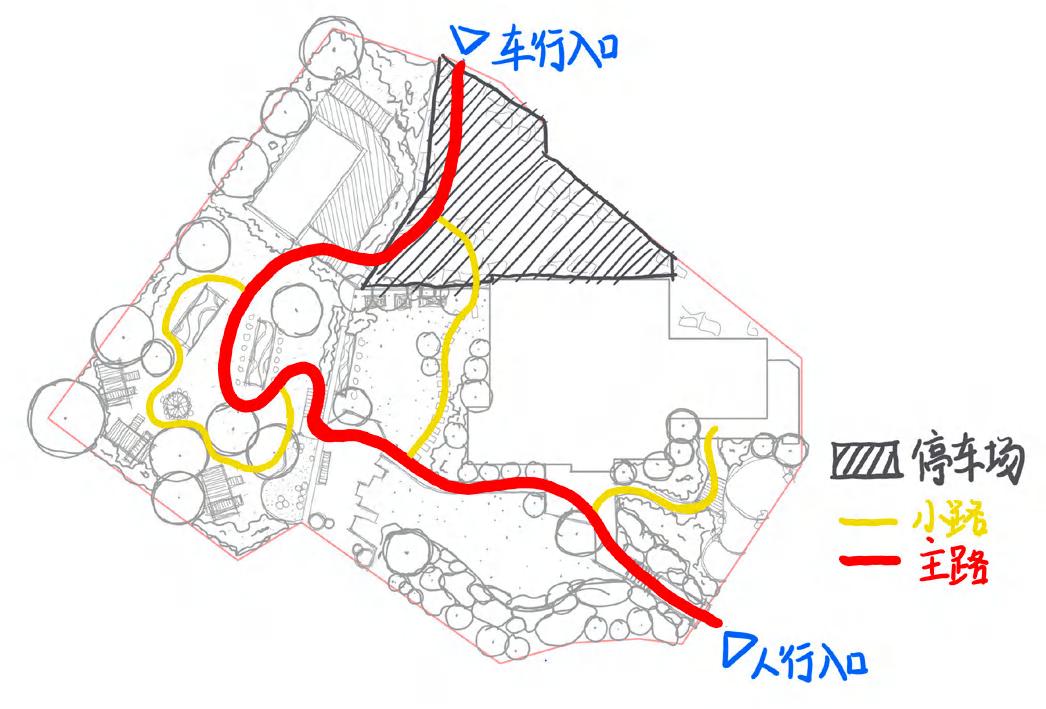

Torreya grandis
Panicled hydrangea
Cluster-flowering camellia
Ilex yunnanensis var. fuzhouensis
Teucrium fruticans
Hosta 'Undulata'
Hosta 'Undulata'
BLOSSOMING CREATIONS ZHEJIANG UNIVERSITY
Ruellia simplex
Hydrangea macrophylla
Festuca glauca
Ajuga ciliata
Coral bells
Sweet alyssum
2.
3.
4.
5.
6.
7.
11 BLOSSOMING CREATIONS
8.
9.
10.
11.
12.
13.

WENJUN ZHU THANK
YOU


